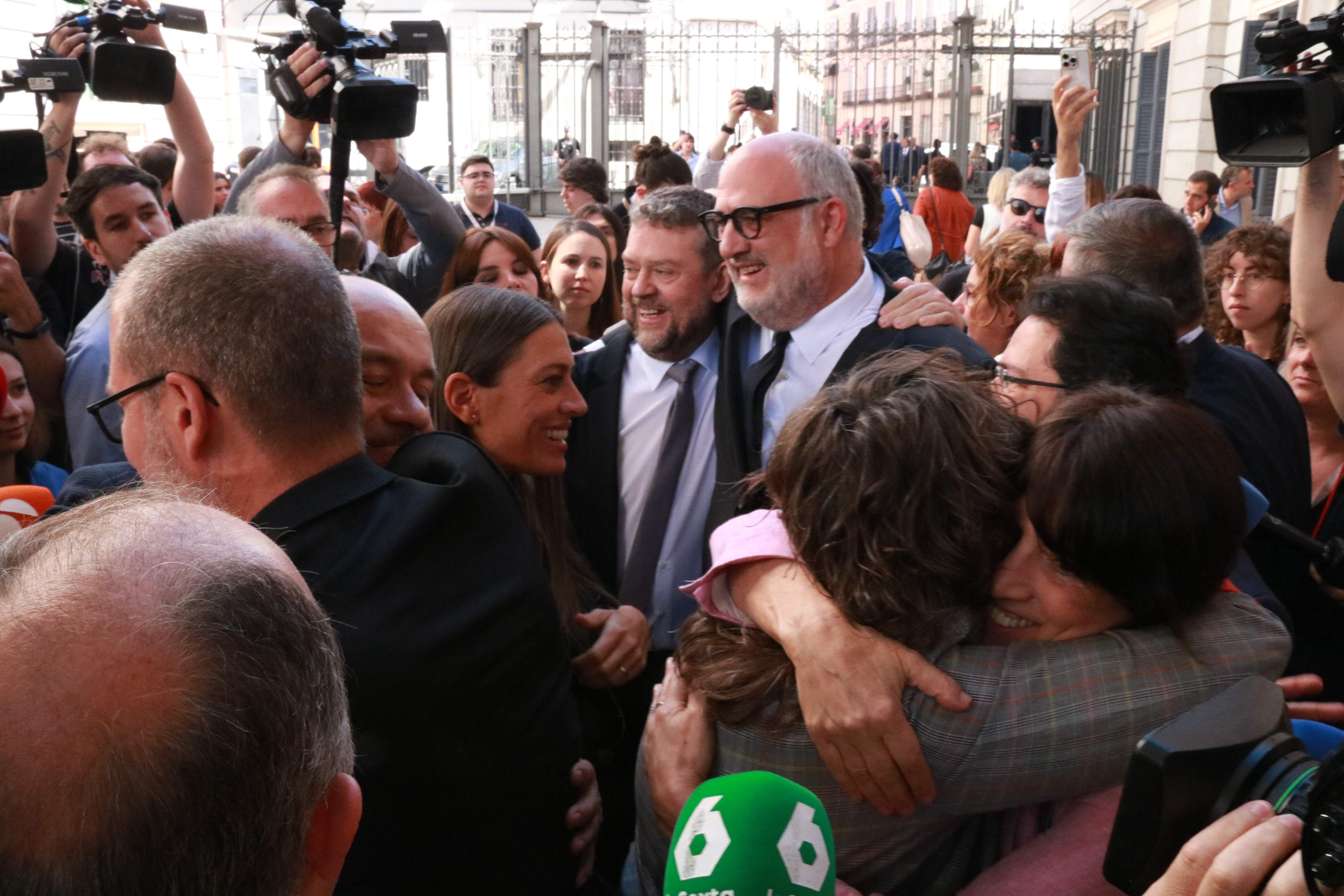June 11th, 2024: Spain's amnesty law is a reality. Twelve days have passed since the Congress of Deputies gave the green light for the so-called "Law of Amnesty for the Institutional, Political and Social Normalization in Catalonia" to be published in the Official State Gazette (BOE). And, at the moment of publication, it entered into force, as stipulated in the third additional provision. So, after a few days of uncertainty, the calendar is now activated and the ball goes firmly into the hands of the judges, who will have to start applying the legislation created to put an end to the repression of the Catalan independence movement. From today, the courts are required to put into practice "the immediate lifting" of the interim measures (such as arrest warrants) and have two months to make the amnesty effective in all other areas. And that, given the declared opposition of parts of the Spanish judiciary to the law, means that a new game is underway.
🔎 Spain's amnesty law for independence process prosecutions: all our stories in English
Hundreds of people will benefit
How many people can benefit from the new law? There are two calculations on the table. On the one hand, the legal aid group Alerta Solidària counts 419 people who will request the application of the amnesty to their cases from among the 1,168 activists and demonstrators who have faced what is referred to as state retaliation against the independence process. The majority are accused of offences of public disorder and assault against an authority (eg, assault a police officer), crimes which are covered by the amnesty law. Of the remaining cases, 597 people have seen their proceedings dismissed and 152 have been acquitted. For its part, the pro-independence cultural group Òmnium has presented a count of 1,616 people who faced retaliation and will be eligible for the amnesty. In addition, the organization has promoted the Amnesty Union, a legal tool to assist in the process of making the amnesty a tangible reality "without delays or tricks or a boycott from judges", as explained by the Òmnium president, Xavier Antich. Finally, the office of the chief Spanish public prosecutor will this week announce its own count of cases that prosecutors provisionally consider to be included within the scope of the amnesty.
Law can be applied by judges 'ex officio' or at the request of the defence or prosecution
From today, we will have to wait for the judges' movements. The law states that the amnesty must be applied "by the courts ex officio or at the request of a party or the public prosecutors" and, in any case, "with a prior hearing by the public prosecutors and the parties". Now, prosecution sources reported a few days ago that the public service will not take the initiative or directly ask for the amnesty to be applied, since it understands that the "primary interested parties" will be the defence and the courts, which are the bodies that have to take the step, while prosecutors will wait to be asked to respond. However, prosecutors will be "proactive" if they see that the law is not being applied as it should be. For his part, Edmundo Rodríguez, spokesperson for Judges for Democracy, a judicial association, emphasizes that "the application of the most favourable criminal law by the courts is a constitutional requirement" and recalls that the Law of Criminal Procedure, which "has been in place for decades", contemplates an amnesty in its article 666 as a "article of prior pronouncement".
Police and activists, the first who are likely to benefit
The first beneficiaries of the new amnesty law could be policemen investigated for beating and denigrating voters on October 1st, 2017, and activists and members of the public, accused of public disorder and assaulting authorities in various demonstrations in Catalonia. Their causes are relatively simple and are up for consideration by judges and courts that are not considered to be politicized, and hence there is no doubt that they will comply with the rule flawlessly and dictate the shelving of the proceedings. So, the officers of the Spanish police and Civil Guard investigated for beating voters during the referendum are among the first who will have the criminal liability for their actions extinguished: it is expected that the head of the Barcelona Court Number 7, Francesc Miralles, who investigated the 46 Spanish National Police officers prosecuted for crimes of minor injuries and offences against the moral integrity of voters in 27 voting centres in Barcelona, will close the case.

